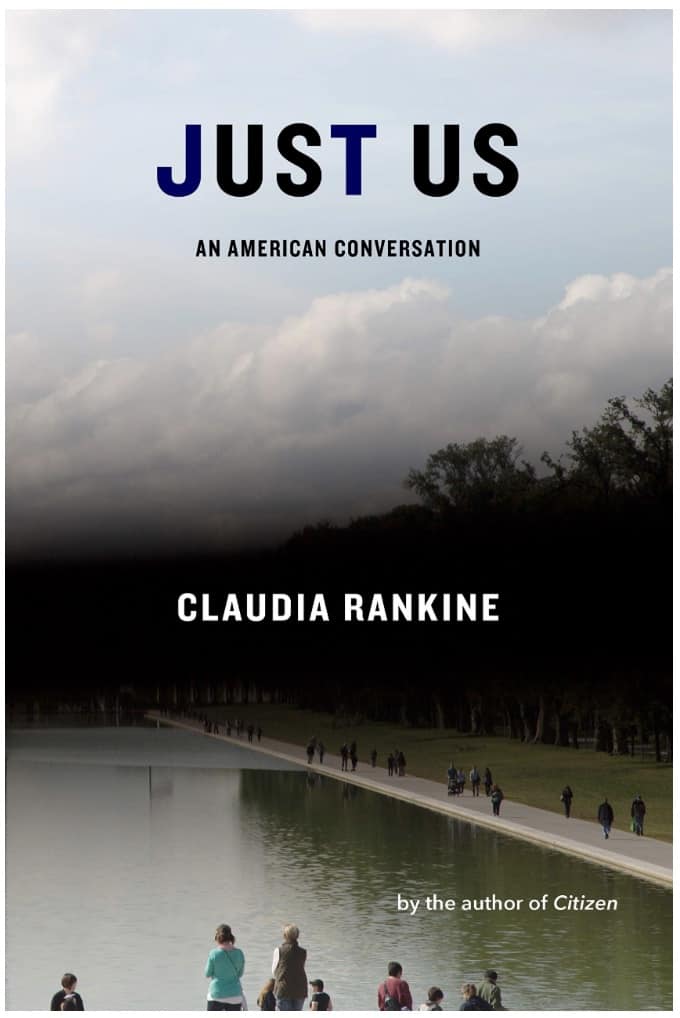Claudia Rankine
in conversation with Viet Thanh Nguyen
Claudia Rankine’s Citizen changed the conversation―Just Us urges all of us into it
Claudia Rankine is the author of Citizen: An American Lyric and four previous books, including Don’t Let Me Be Lonely: An American Lyric. Her work has appeared recently in the Guardian, the New York Times Book Review, the New York Times Magazine, and the Washington Post. She is a chancellor of the Academy of American Poets, the winner of the 2014 Jackson Poetry Prize, and a contributing editor of Poets & Writers. She received a MacArthur Fellowship in 2016. Rankine is the Frederick Iseman Professor of Poetry at Yale University.
Viet Thanh Nguyen’s novel The Sympathizer won the Pulitzer Prize for Fiction and numerous other awards. His other books are a short story collection, The Refugees; Nothing Ever Dies: Vietnam and the Memory of War (a finalist for the National Book Award in nonfiction and the National Book Critics Circle Award in General Nonfiction); and Race and Resistance: Literature and Politics in Asian America. He is a University Professor, the Aerol Arnold Chair of English, and a Professor of English, American Studies and Ethnicity, and Comparative Literature at the University of Southern California. A recipient of fellowships from the Guggenheim and MacArthur Foundations, he is also a contributing opinion writer for the New York Times and the editor of The Displaced: Refugee Writers on Refugee Lives. His most recent publication is Chicken of the Sea, a children’s book written in collaboration with his six-year-old son, Ellison. His next book is the sequel to The Sympathizer, The Committed, forthcoming in March 2021.
“With Just Us, Claudia Rankine offers further proof that she is one of our essential thinkers about race, difference, politics, and the United States of America. Written with humility and humor, criticism and compassion, Just Us asks difficult questions and begins necessary conversations.”―Viet Thanh Nguyen
As everyday white supremacy becomes increasingly vocalized with no clear answers at hand, how best might we approach one another? Claudia Rankine, without telling us what to do, urges us to begin the discussions that might open pathways through this divisive and stuck moment in American history.
Just Us is an invitation to discover what it takes to stay in the room together, even and especially in breaching the silence, guilt, and violence that follow direct addresses of whiteness. Rankine’s questions disrupt the false comfort of our culture’s liminal and private spaces―the airport, the theater, the dinner party, the voting booth―where neutrality and politeness live on the surface of differing commitments, beliefs, and prejudices as our public and private lives intersect.
This brilliant arrangement of essays, poems, and images includes the voices and rebuttals of others: white men in first class responding to, and with, their white male privilege; a friend’s explanation of her infuriating behavior at a play; and women confronting the political currency of dying their hair blond, all running alongside fact-checked notes and commentary that complements Rankine’s own text, complicating notions of authority and who gets the last word.
Sometimes wry, often vulnerable, and always prescient, Just Us is Rankine’s most intimate work, less interested in being right than in being true, being together.


